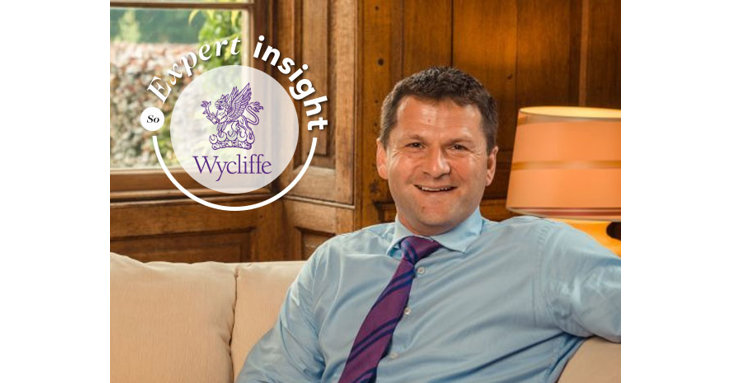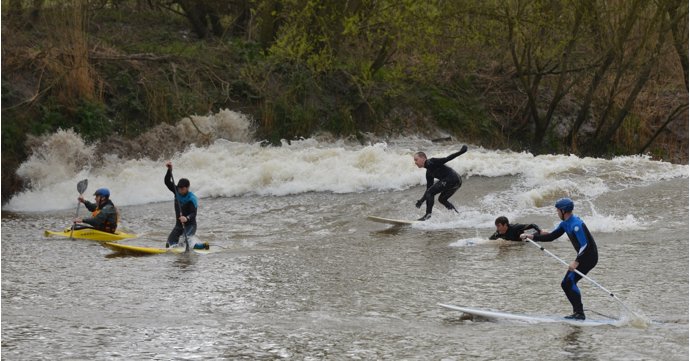As the 10th head in Wycliffe College’s 130-year history, Nick Gregory’s career has taken him from professional banker through to Spanish teacher, and now after almost 20 years in education, he’s the leader of one of Gloucestershire’s most prestigious independent schools.
Stressing the importance of pastoral care within the college, Wycliffe aims to be an inclusive, safe and stimulating environment, conducive to learning. Speaking to SoGlos, Mr Gregory gives us his insight into how to give all children an educational start that will see them succeed in later life.
You’ve got years of experience both as a subject teacher and working in the management side of education. What are the main changes you’ve noticed during that time?
In the last decade or so, I don’t think education itself has changed a great deal, but the way that education is viewed by parents is definitely different.
Parents still want their children to achieve academically to the very best of their ability, but it now matters a lot more to parents how their children are being developed as people.
That includes how they’re being prepared for life after they finish school, but also their emotional and mental wellbeing. I think a decade ago, it was very convenient just to judge schools on a league table, and now I think those days are long gone.
Pastoral care is clearly very important to the ethos of Wycliffe, but what does that actually mean, and how can parents judge if a school is good at it?
It’s interesting, because lots of schools claim to do it very well, parents know that they should think it’s important, but they don’t always know exactly what they’re looking for! Ultimately there should be really good systems in place to offer support and guidance, but it’s actually a lot more than that.
Look at how children at the school interact with other adults, are those relationships encouraging and supportive? Are their differences and diversity celebrated?
Also think about how a school manages its students’ behaviour, especially around things like bullying. That’s something that’s very important to us at Wycliffe – our pupils’ behaviour needs to attract as much recognition and praise as the things they achieve.
Do children need more praise and support now than in previous generations?
I think it’s important that today’s children feel properly listened to. If you don’t notice children and you don’t listen to their opinions, I think you’ll get a kick back in today’s world.
In the past people thought it was all about obedience and complying with standards, but now I think pupils need to be listened to, and have their thoughts respected. We do that at Wycliffe through surveys and school council meetings, to take feedback, and to explain why we do the things we do.
Pastoral care is also about good sleep patterns, healthy diet and regular exercise. Those things underpin healthy human beings, but instilling that into children early on starts at home, and we encourage parents to start those good habits as early as possible so it becomes part of life.
Wycliffe is well-known for its commitment to extra-curricular activities. Is that something that parents should be pushing children towards?
I think lots of people in Gloucestershire are aware of Wycliffe because of our sport, but actually, we’re just as proud of what our pupils achieve in art, drama, music or debating. But perhaps one of the most important things we teach children at Wycliffe, is to take part in positive volunteering and give charitable contributions to the local community.
All of us, whether we’re parents’ staff or pupils, need to value the qualities and attributes that these extra-curricular activities can develop. So that’s things like collaboration, leadership, perseverance, creativity, teamworking and being aware of others less fortunate. It’s something that I think we may have lost sight of for a while, but that empathy is a very valuable trait to have these days.
What can parents do at home to encourage a great educational start?
There are two things really, one is promoting a good relationship with reading and the other is parents actually taking time to really engage with their children.
I have an initial interview with children and parents before they start at the school, and time and again the most interested, the most impressive, the most thoughtful children are the ones who’ve been encouraged to read a lot from an early age.
So as important as technology is in 2018, there’s still so much to be said for encouraging young people to read widely and open their minds to different ideas and different cultures.
The second thing is up to the parents. Children who have parents who are optimistic, positive and enthusiastic about learning and set aside time to spend with their children, sharing their interests and enthusiasms, unsurprisingly, those are the children who come across best.
For more information visit wycliffe.co.uk directly.


















